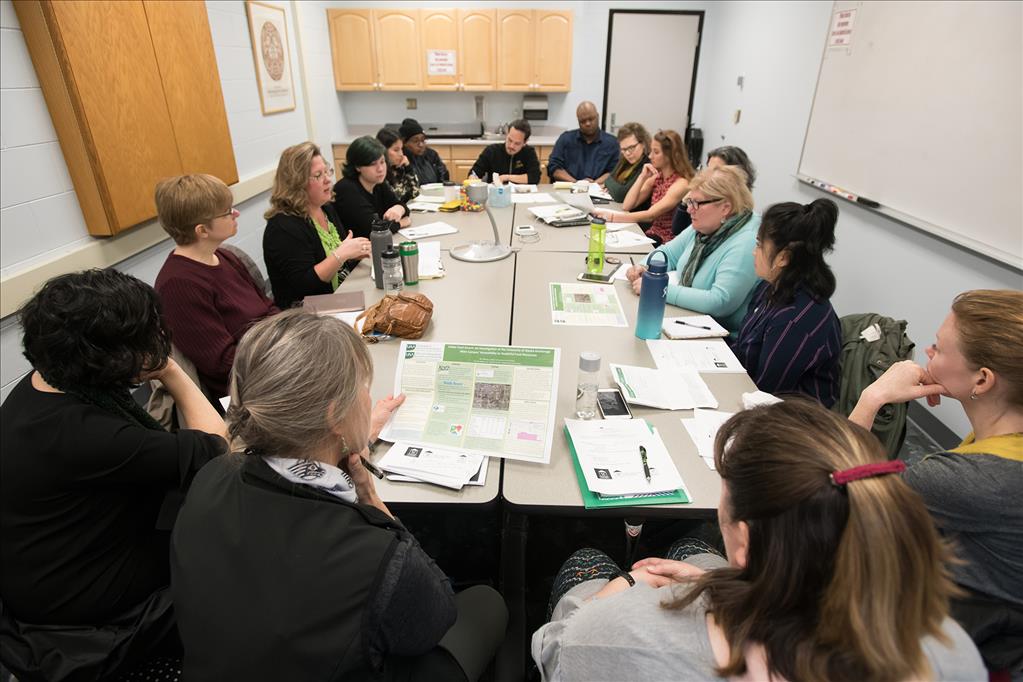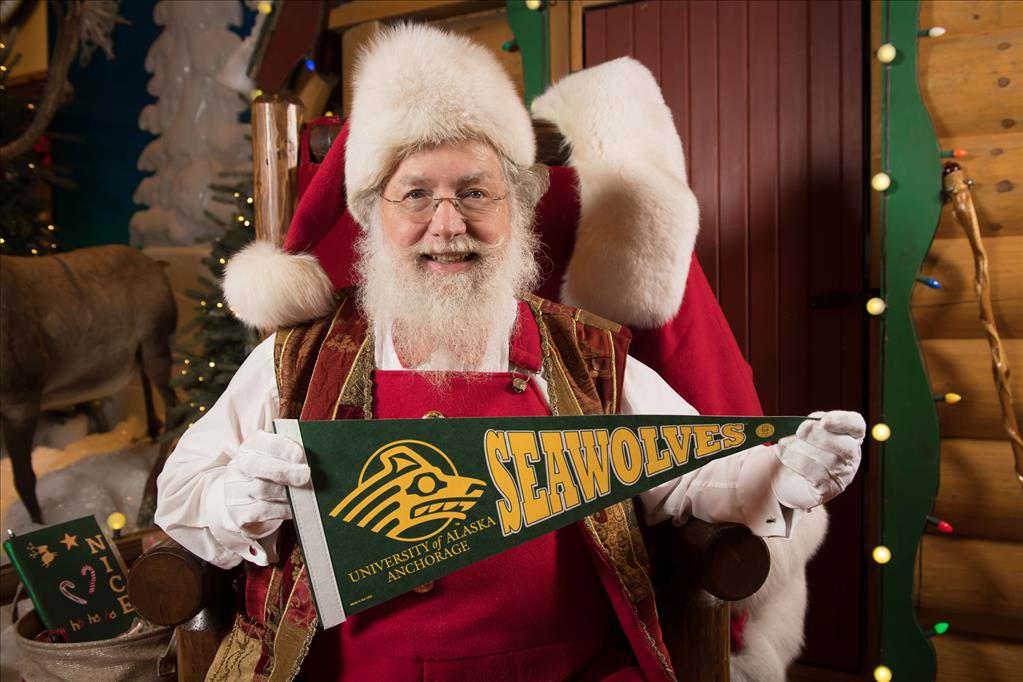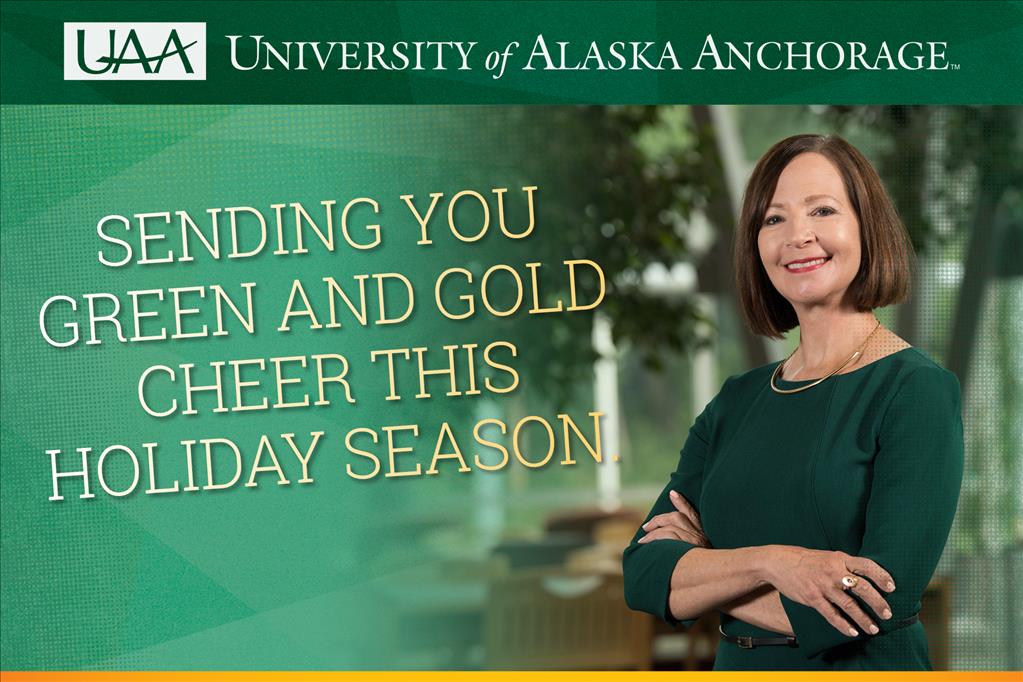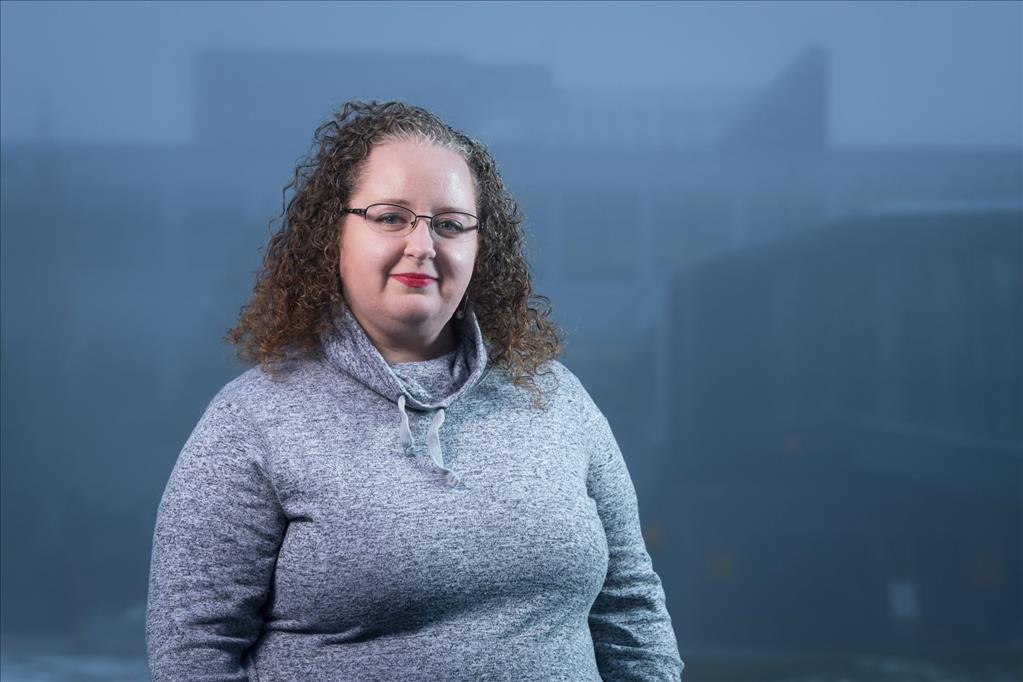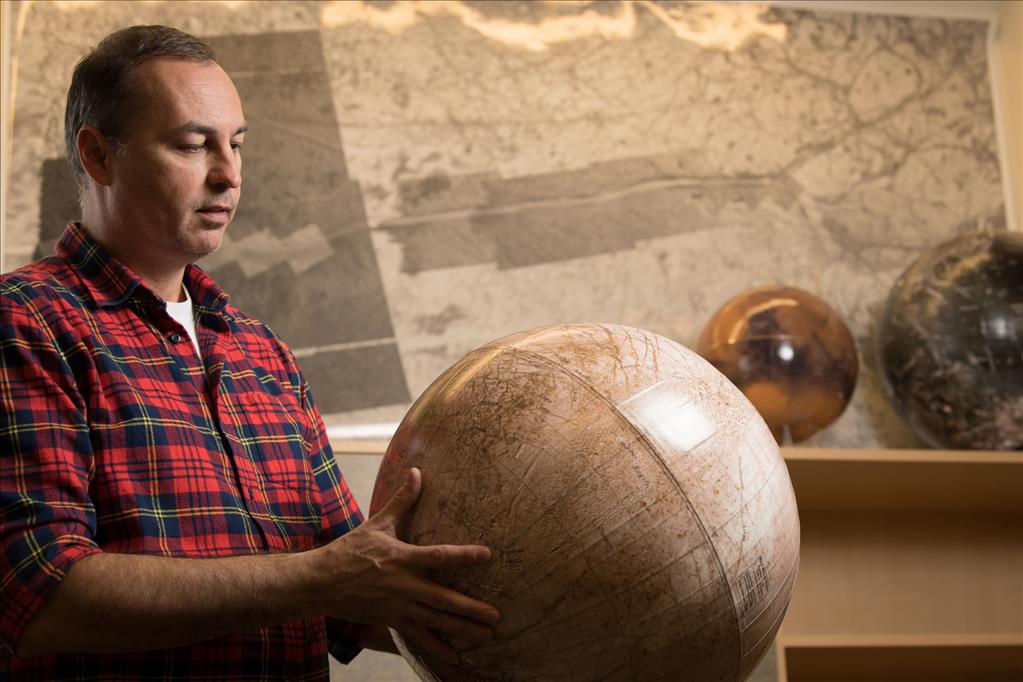New team of first-year advisors lays groundwork for student success
by Jessica Hamlin |
Transitioning into college can be stressful and overwhelming, but there's a new team of professionals on campus to ensure new students have the tools and resources needed to make the most out of their college career at UAA.
Enter the First-Year Advisors (FYA). This newly created team is made up of advising professionals who are dedicated to helping new students feel welcome, connected and prepared.
Advisors can help students with anything from registering for classes, finding answers to questions, connecting with various campus and community resources, or just being a listening ear on particularly stressful days.
Refocusing on student success
Student success is at the core of UAA's mission, and the creation of the FYA team supports campuswide UAA 2020 efforts to refocus on student success.
UAA 2020 goals are to advance a culture of institutional excellence that inspires and enables student, faculty and staff success; see more students persist and complete their educational goals; and graduate more students to fill Alaska's needs.
To help support these efforts, UAA appointed Dr. Claudia Lampman as the inaugural vice provost for student success. Since taking on this role in November 2017, she has been busy implementing several initiatives to increase UAA's retention and graduation rates.
Her first few months on the job, Lampman got to work to better understand what it's like to be a college student at UAA.
"I did things like apply to college, here and elsewhere, and I looked at data on retention and graduation rates, and broke it down by type of student," Lampman said. "I spent a lot of time just trying to figure out what the student experience is like."
Through her research, it became clear that UAA had a gap on the front end and many students were coming into UAA with little to no guidance.
"We had no mandatory guidance at all, so the average student didn't get advising before registering for their first semester," she said. "It's not surprising to find out that a lot of students probably took a lot of classes that weren't the right fit for them, failed them, switched their majors a couple times — it didn't take long to figure out that what we needed was not just mandatory advising for first-year students, but we needed a different kind of advising, not just academic advising."
Building the team
Lampman hired Valerie Robideaux in April as the director of first year advising. Robideaux is tasked with establishing and overseeing the FYA team, implementing and overseeing new data-driven advising and communication tools to improve student success (Seawolf Tracks), and also collaborating on new student success initiatives to increase persistence and completion.
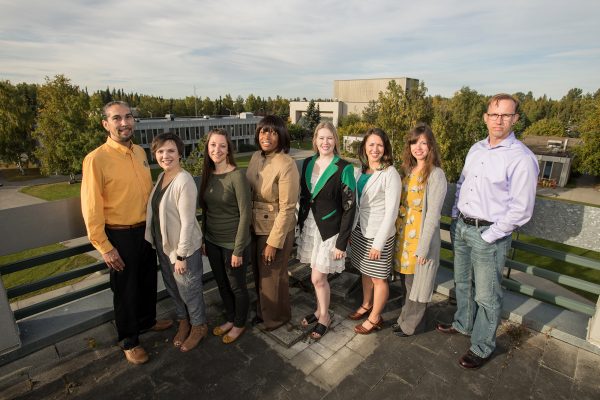
UAA's First Year Advising Team, from L-R: Quentin Simeon, Valerie Robideaux, Valerie Svancara, Andrea Hudson, Kae Hartman, Sharon Pruszko, Tara Ballard, Jerry Brockman. (Photo by James Evans / University of Alaska Anchorage)
Robideaux spent the summer recruiting, interviewing and hiring a team of eight advisors. "We hired an amazing team," she said. "We have people with high emotional intelligence, who know the university well or have the ability to learn it quickly. And most importantly, they are good at building — they're instrumental in building this program from the ground up."
In addition to developing its advising framework, the team has created its own training program and is currently studying the wide variety of campus resources and programs, and is collaborating with departments like financial aid and the registrar's office, to better understand the ins and outs of UAA.
Beginning in spring 2019, the FYA team will be fully functioning. They'll advise incoming first-time, degree-seeking students for fall 2019 to help them register for their foundational, first-year courses.
"As soon as students are admitted, we'll reach out to them and say, 'Hey, I'm going to be your first-year advisor,'" Robideaux said. "Our mission is to make every student feel welcome, connected and prepared."
What can students expect?
The new advising framework is two-fold: adjustment advising and academic advising.
Adjustment advising will make sure students have an understanding of how the UAA system works and also what essential "to-do's" they need to check off their list, things like knowing how to access online technologies, and getting their parking pass and WolfCard.
"Another question we'll be asking is, 'Where does this student belong? What organization or group on campus can they get connected with based on who they are and what their interests are?' And then bridging that gap so that we can connect them to those organizations or clubs," Robideaux said.
Academic advising will bring first-year students up to speed on foundational courses like writing, math and communication.
"First-year students need to know to get those foundational courses done," Lampman said. "You need to have your math, your writing, oral communications solid before you're in a good position to move into higher level courses. That's a big change for our students. When you're self-advising, you tend to avoid things you're afraid of — they'd put it off, and the longer you put it off, the harder it gets."
The FYA team will also be partnering with departments and programs across campus, like the Learning Commons, to make sure students have additional academic support if they need it. Additionally, the team will also host a series of social networking events as opportunities for students to establish connections with other students.
Culture shift
Until now, advising at UAA has not been consistent, nor mandatory. As such, transitioning to a mandatory first-year advising system will likely be a culture shift for the campus community. The more holistic approach to advising, combining adjustment and academic advising, and making it a requirement, is a change from what students have experienced at UAA.
"Getting faculty, staff and students used to the idea, and knowing what intersections to collaborate with others on, is our biggest opportunity," said Robideaux.
Lampman explained that, currently, students can register without seeing an advisor and says the existing advising system is very decentralized. "Each college does it [advising] differently, and even with some programs within colleges, it's done differently," she said.
One goal of the FYA team is to set incoming students up for an advising culture, so they understand there's a key resource on campus that can help guide them along in their new academic endeavor.
"Our hope is that, if we set students up in their first year, connecting them to all the things they need to be successful, that lives with them," Lampman said. "They don't have to relearn that every year. So, by the time they're ready for their college advisor, all those resources they need, they've used them, they're part of their life."
Academic pathways
One of Lampman's major student success initiatives is to develop an academic pathways initiative, also commonly referred to as meta majors or career clusters.
"The data on how many of our students drop out after their first year, it's almost one in three," said Lampman. "Just drop out. Poof, gone, don't come back. That tells me that students aren't on the right path from the get-go."
She said students that stay may switch their majors once or twice within their first few semesters, which means having taken unnecessary classes that add to expenses and won't count toward the end goal.
Academic pathways is a way of bringing in students and placing them within a cluster of majors. Take health, for example. "Right now, everyone wants to be a nurse," Lampman said, "but there are so many other things you can do in health sciences than be a nurse. ... UAA has so many great programs and we want to expose students to that."
The pathways model advises students in such a way that courses taken within a cluster will count toward any of the majors in that same cluster, but will also count if, say, a student decides to move into behavioral health or social sciences or business.
Future vision
As Lampman continues to develop the academic pathways initiative, the FYA team is busy completing training programs and fine-tuning its advising framework in preparation for full implementation in the spring semester.
Also among the work currently underway is identifying transition points, and building relationships across campus to make students' experience more seamless as they navigate through their college career.
"My overall goal for students is for them to envision a future self at UAA," said Robideaux. "I want them to see beyond their first year — anything that we can do to help them see themselves as a leader on campus, as a student in a particular major or program, get them connected to a college, club or organization — so they can thrive and succeed in their goals."
Written by Jessica Hamlin, UAA Office of University Advancement
 "New team of first-year advisors lays groundwork for student success" is licensed under a Creative Commons Attribution-NonCommercial 4.0 International License.
"New team of first-year advisors lays groundwork for student success" is licensed under a Creative Commons Attribution-NonCommercial 4.0 International License.










